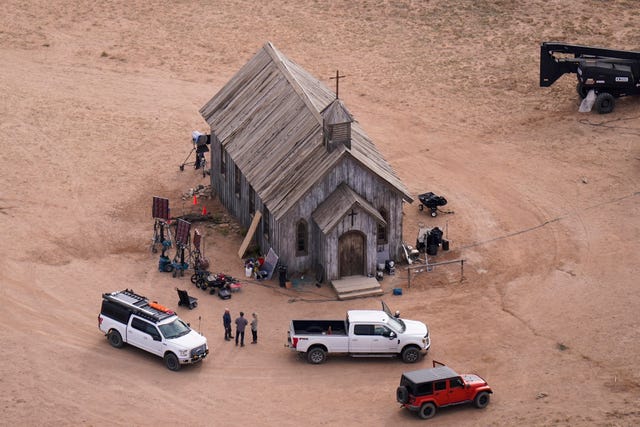Judge asked to reconsider dropping charge against Alec Baldwin in shooting case
An involuntary manslaughter charge against Baldwin in the fatal shooting of a cinematographer on the set of a Western film was dismissed.

A prosecutor has asked a New Mexico judge to reconsider the decision to dismiss an involuntary manslaughter charge against Alec Baldwin in the fatal shooting of a cinematographer on the set of a Western film, according to a court filing made public on Wednesday.
Special prosecutor Kari Morrissey said there were insufficient facts to support the July ruling and that Baldwin’s due process rights had not been violated.
State District Court Judge Mary Marlowe Sommer dismissed the case halfway through a trial based on the withholding of evidence by police and prosecutors from the defense in the 2021 shooting of cinematographer Halyna Hutchins on the set of the film Rust.
The charge against Baldwin was dismissed with prejudice, meaning it cannot be revived once any appeals of the decision are exhausted.

The case-ending evidence was ammunition that was brought into the sheriff’s office in March by a man who said it could be related to Hutchins’ killing. Prosecutors said they deemed the ammunition unrelated and unimportant, while Baldwin’s lawyers alleged that they “buried” it and filed a successful motion to dismiss the case.
In her decision to dismiss the Baldwin case, Marlowe Sommer described “egregious discovery violations constituting misconduct” by law enforcement and prosecutors, as well as false testimony about physical evidence by a witness during the trial.
In the request to reconsider, Ms Morrissey argued again that the undisclosed ammunition was not relevant to the case against Baldwin, which hinged on his responsibility to handle a gun safely under familiar industry guidelines.
“No one on the prosecution team ever intentionally kept evidence from the defendant, it simply didn’t occur to the prosecution that the rounds were relevant to the case,” Ms Morrissey wrote.
She asserted that defence lawyers knew about the rounds but cancelled an opportunity to view them prior to trial.
“This is a smokescreen created by the defence and was intended to sway and confuse the court … and it was successful,” she wrote.
Baldwin’s lead lawyer, Luke Nikas, did not immediately respond to requests for comment about Ms Morrissey’s filing.
Movie armourer Hannah Gutierrez-Reed is serving an 18-month sentence on a conviction for involuntary manslaughter.
She was accused of flouting standard safety protocols and missing multiple opportunities to detect forbidden live ammunition on set.
Gutierrez-Reed is seeking the dismissal of her conviction based on the allegations of suppressed evidence that emerged at Baldwin’s trial.
Separately, Gutierrez-Reed has requested a plea hearing on a felony firearms charge pertaining to accusations that she took a gun into a Santa Fe bar weeks before Rust began filming.
Defence lawyer Jason Bowles did not respond to a message seeking more information.
Assistant director and safety co-ordinator David Halls pleaded no contest to the negligent use of a deadly weapon and was sentenced to six months of unsupervised probation. A no contest plea is not an admission of guilt but is treated as such for sentencing purposes.
It has not been officially determined who brought the live rounds that killed Ms Hutchins to the set, though prosecutors allege that Gutierrez-Reed was responsible.
The ammunition was handed over to a Santa Fe County Sheriff’s Office crime scene technician who filed the evidence under an unrelated case number. Three of those rounds resembled live rounds that were collected from the Rust set after the fatal shooting.
The mysterious ammunition was dropped off at the sheriff’s office by Troy Teske, of Bullhead City, Arizona, who routinely stored weapons and ammunition for his friend and longtime movie-gun coach Thell Reed — Gutierrez-Reed’s step-father and mentor as a film-set armourer.
Ms Morrissey asked the judge to order defence lawyers to show when and how they learned of the ammunition provided by Mr Teske, calling the defence motion to dismiss the case “all a ruse”.





